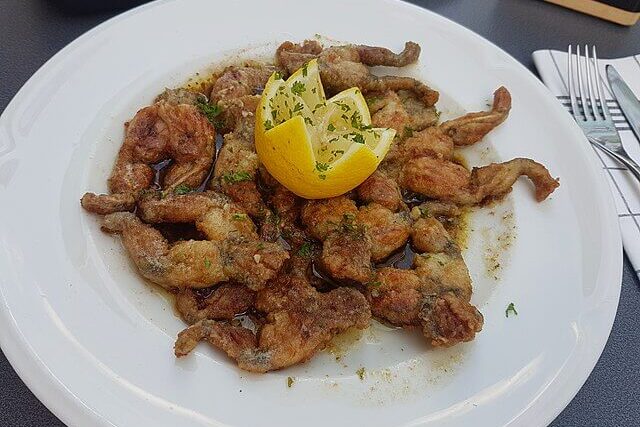
A consortium of scientists and veterinarians has issued a stark warning about France’s insatiable appetite for frogs’ legs, denouncing it as “destructive to nature” and placing amphibians in Asia and southeastern Europe at risk.
With over 500 experts representing research, veterinary, and conservation spheres, the call has been directed towards French President Emmanuel Macron, urging him to curb the overexploitation of frogs and provide enhanced protections for the most traded species.
An alarming revelation reveals that the EU annually imports an estimated 80-200 million frogs, primarily destined for consumption in France. The sourcing of these amphibians predominantly taps into wild populations in Indonesia, Turkey, and Albania, alongside farming operations in Vietnam.
This trade, as highlighted by Robin des Bois and Pro Wildlife, two conservation organisations spearheading the plea, starkly contrasts with the EU’s wildlife preservation strategy, as emphasised by Sandra Altherr, Pro Wildlife’s Head of Science.
“It’s absurd: the natural frog populations here in Europe are protected under EU law. But the EU still tolerates the collection of millions of animals in other countries – even if this threatens the frog populations there.”
France’s voracious consumption of frogs’ legs, a culinary delicacy often prepared fried or sautéed, eclipses that of any other EU nation. Advocates argue for France to champion global safeguards for vulnerable frog species under the Convention on International Trade in Endangered Species of Wild Fauna and Flora (CITES), aimed at curbing illicit flora and fauna trade.
In February, 46 environmental NGOs echoed similar sentiments, urging France’s Ministry of the Environment to act decisively. Studies indicate distressing declines in frog populations, with species like the fanged river frog (Limnonectes macrodon) vanishing from commercial imports to France, while others, like the crab-eating frog (Fejervarya cancrivora) and rice-field frog (Fejervarya limnocharis), face dwindling numbers due to relentless commercial exploitation.
Aside from their culinary appeal, frogs serve crucial ecological functions, such as enhancing water quality in ponds through tadpole activity and aiding in pest control for farmers by consuming insects like mosquitoes.
Alain Moussu, President of Vétérinaires pour la Biodiversité, underscores the substantial support garnered from the veterinary community in this initiative.
“They are both sensitive to the cruelty that prevails in this market and concerned about the ecological imbalances caused by the collapse of amphibian populations,” he said.
——————————————————————————
At Natural World Fund, we are passionate about stopping the decline in our wildlife.
The decline in our wildlife is shocking and frightening. Without much more support, many of the animals we know and love will continue in their decline towards extinction.
When you help to restore a patch of degraded land through rewilding to forests, meadows, or wetlands, you have a massive impact on the biodiversity at a local level. You give animals a home and food that they otherwise would not have had, and it has a positive snowball effect on the food chain.
We are convinced that this is much better for the UK than growing lots of fast-growing coniferous trees, solely to remove carbon, that don’t actually help our animals to thrive.
This is why we stand for restoring nature in the UK through responsible rewilding. For us, it is the right thing to do. Let’s do what’s right for nature!
Donate today at https://naturalworldfund.com/ and join in the solution!

